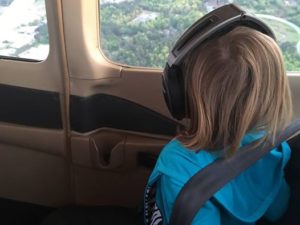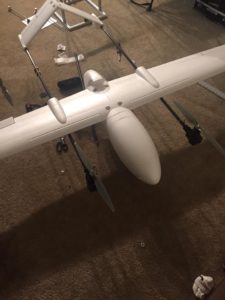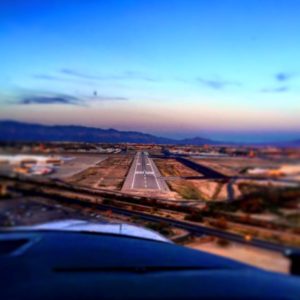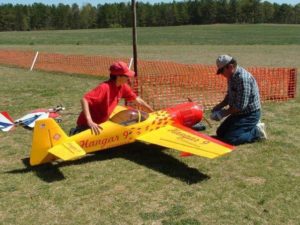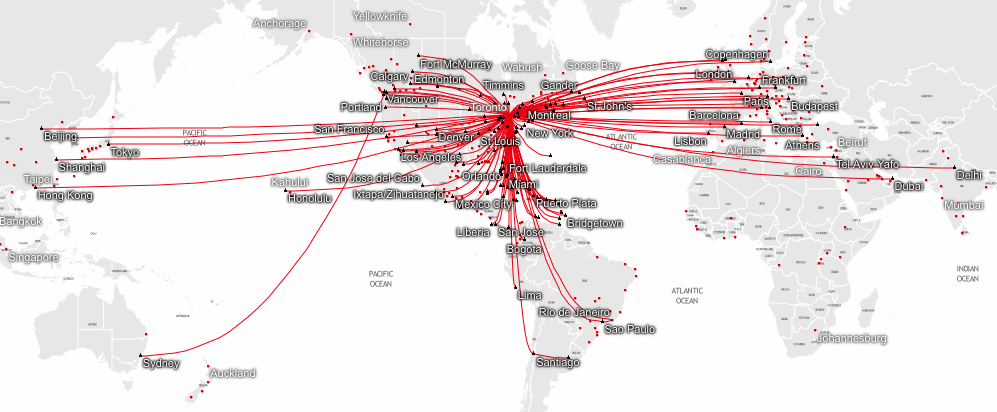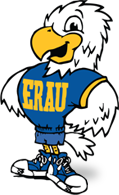When Pete came to Embry-Riddle as a freshman in fall of 2009, his goal after graduation was to be a pilot, a dream he’d had since he was in first grade. But it wasn’t long until he recognized his love of aviation would be better served in a business role, so he changed his major to business administration.
“My internship at Tweed New Haven Regional Airport opened my eyes to this and made me realize flying wasn’t the only way I could be actively, hands-on involved in aviation every day,” he says in his introductory student blog.
He began writing the blog as a sophomore and, by that time, was well on his way to achieving his college graduation goals. He’d began working in Airport Operations at Daytona Beach International Airport almost 30 hours per week. In addition, he earned his Private Pilot’s Certificate, Instrument Rating, made Honor Roll, published a blog and articles for various online outlets, was certified in Aircraft Rescue & Firefighting, and had organized large events including an air show. Pretty impressive stuff – but that was just the beginning.
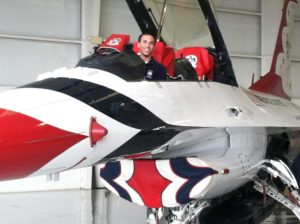
Prospective students followed Pete’s adventures at RiddleLifeFlorida where he shared his Embry-Riddle experiences of plane spotting, day trips to Disney, and work stories. One of the highlights was working during the Daytona 500 NASCAR races and supporting the United States Air Force Thunderbirds, the more than 250 corporate aircraft that fly in and out during the event, and even celebrities like Fergie.
Fast forward to 2016 and we find Pete about to begin his third year of law school and at the NTSB working as a Law Clerk. How did he get there? Let’s ask him.
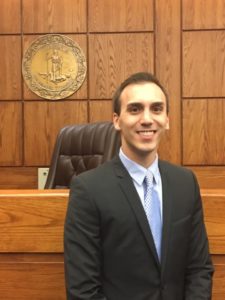
The last Riddle blog you wrote was in 2011. Where did life take you from there?
Well, somewhat comically, not three days after graduation from Riddle I began working in my new job at Orlando International Airport. I was given a rare opportunity for someone only 22 years old due to the amount of experience that I had developed to be an Airfield Operations Specialist at one of the largest airports in the world. I still credit my experiences at Embry-Riddle in addition to my work experience for getting me there. It was truly a great experience to be responsible for something as big as Orlando International on a day-to-day basis.
While I was at Orlando, I decided that it would be a good idea to continue my education, so I began working on a Master’s of Science degree in Criminal Justice at the University of Central Florida on a part-time basis. In doing this, and in the work I was doing at the airport, I uncovered an interest in the law, specifically in aviation law. So, I took the LSAT and applied to law schools, ultimately selecting the Antonin Scalia Law School at George Mason University in Arlington, VA. Following my first year of law school, I was lucky enough to do an internship with the Federal Aviation Administration in their Chief Counsel’s office. Following my second year of law school, and presently, I am working in the General Counsel’s office of the National Transportation Safety Board as a law clerk. Then, I will complete my last year of law school, take the Bar exam, and be an attorney working in the aviation industry in some capacity.
How did you choose a grad school?
I started my graduate studies at UCF largely due to its proximity to work, and also because of their criminal justice program that is well respected in the industry. In choosing Scalia Law, I was primarily focused on attending a Top 50 law school in close proximity to Washington, DC and the federal government. Ultimately, that proximity has allowed me to obtain a great deal of exposure with the government and to work/intern there during the school year, while students at many other schools only have the opportunity to participate in internships with the federal government during the summers.
How did Embry-Riddle help you prepare for and transition to grad school?
Riddle definitely prepared me for grad school in the way that the professors structured their classes and assigned projects. The Riddle requires students to be strategic in their time management and planning, while also teaching students how to think rationally and logically. These skills are imperative for success in law school. You need to be able to process information quickly and accurately, and you need to be able to budget your time almost perfectly, especially in the first year of law school. Additionally, the Aviation Law course that I took at my law school was more of a review than anything else as a result of the coursework from the College of Business. This allowed me to excel above the other students in that class.
What was your grad school experience like?
It is still ongoing, that is for sure! As most people know, the first year of law school is tough. You are assigned hundreds of pages of reading a night, legal writing projects, and you are also randomly subject to being called on in class to discuss the material (the “Socratic method.”) It really left no free time to do much of anything else. The second year was much easier, and I was able to get involved on the Trial Advocacy Team, continue my internship at the FAA, and even take on a part-time job to make a little money. The third year of law school is more outside the classroom work and less school: I will only have class two days a week this semester and will be working the remaining days. All in all though, the skills I have learned are very helpful and useful, and I appreciate the experience very much.
Did you ever imagine you’d find yourself working for the NTSB?
No, I don’t think so! I was always interested in accident investigations and wanted to take those classes at Riddle, but I was never able to do so unfortunately. I did not think that I would ever be working in a legal capacity for the Board, however, that is for certain. I am enjoying it very much thus far!
What are some of the legal issues specific to aviation?
There are many legal issues in aviation today, probably the most well-known of which involve the air service controversies that have been occurring with foreign carriers such as Emirates and Qatar, and US-flag carriers. Foreign carriers must be permitted by the Department of Transportation to serve destinations in the United States, allowing them to compete with US carriers on the same routes. However, some US carriers have claimed that they cannot compete with these foreign carriers because those carriers are subsidized by their respective country’s governments and subject to those countries’ laxer labor laws, resulting in significantly lower overhead and the ability to charge far cheaper fares.
However, aviation law issues stretch further than one might imagine to include tort litigation (personal injury), enforcement, regulatory concerns, and more. Personally, my favorite area is tort litigation as I love being in the courtroom. Ultimately, I would love to be able to litigate cases involving aircraft crashes in court. The utility of my Embry-Riddle background and technical knowledge is immeasurable when it comes to this type of law.
Do you still spend time flying?
Yes, I try to. The Washington, DC airspace is somewhat tricky, but I have found an airport nearby that has nice rentals and is not too hard to get to. When time permits, I love to fly around and check out the landscape of Virginia.
Are there many ERAU grads working with you?
There are, actually, but not directly in the General Counsel’s office. Many of the investigators went to Embry-Riddle, and, in fact, one of the presidentially-appointed Board Members (Robert Sumwalt) has a Master’s Degree from Embry-Riddle.
Advice for students attracted to Embry-Riddle?
Prospective students? If you have even the slightest interest that you want to work in aviation in any capacity, go to Embry-Riddle. Take it from me. The opportunities that I have had have all been related to my degree from Embry-Riddle. The people you meet will connect you with jobs for the rest of your life. It is worth every penny you spend on your degree to go to Riddle. I would not be where I am today if I did not go to Embry-Riddle. In short, DO IT. The education is fantastic and will prepare you for whatever you choose to do in life. Additionally, going to college in Daytona Beach is an experience that I reminisce about every day, and you will absolutely love it yourself.
Current students? Think outside the box. I came into Riddle with tunnel vision that I wanted to be an airline pilot, but look where my career took me due to one internship. Try a few different things and see what you like. Don’t give up, even when it gets hard. It will all be worth it. Lastly, enjoy every minute of it, because it goes by so fast. But, know that the friends you make at Riddle will be your friends for life. Virtually all of my best friends are people who I met during college.
Students interested in similar careers can contact Pete at jgreco@gmu.edu


